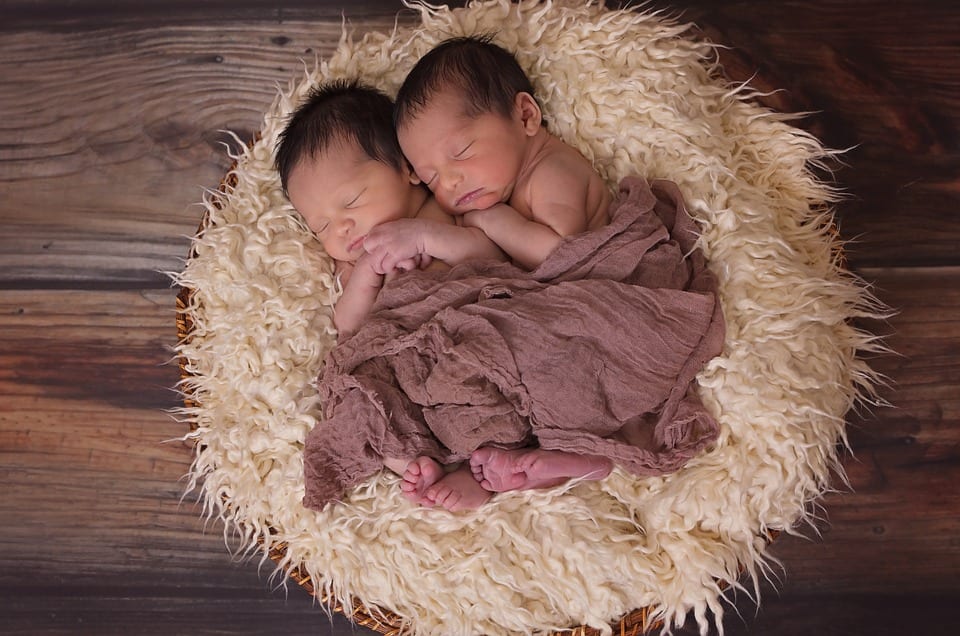Fifty or a hundred years ago, no one really minded giving their kid a name that tons of other kids had – staples like Michael and Mary not only topped the popularity lists, but were bestowed a far higher percentage of young ladies and gents than any of the top ranking names today.
Parents nowadays are looking for a moniker that won’t be called out more than once during first grade roll call…but how far is too far?
We would all do well to remember that you’re giving a name to a human being who has to live with it for the rest of their life, and go with my fallback mantra when naming characters for my books – different, but not weird.
Below are 7 other things to keep in mind when coming up with a name for your little bundle of joy, according to Sherri Suzanne, a baby name consultant and founder of My Name for Life.
#7. Is it too diminutive?

Image Credit: Pixabay
Remember that you’re not naming only a baby – he or she will, we certainly hope, one day also be an autonomous adult. That said, names that are cute for a toddler might not age all that well if your little bundle ends up holding a gavel or making a run at the presidency.
Suzanne suggests using the diminutive form as a nickname but allowing the child a formal name should he or she desire one at some point.
Example: Naming a girl Josephine and calling her Joey, Jojo, Josie, Jo etc as long as she’s okay with it.
#6. Consider your style.

Image Credit: Pixabay
Are you unusual? Classic? Trendy? The name you choose for your baby might just follow suit.
“I ask my clients to begin by observing name styles even before they need to choose – listen in stores, restaurants and parks as parents call to their children,” Suzanne says. “I ask parents to pay attention to their own visceral reaction to name styles and ask, ‘Am I drawn to contemporary names like Beckett and Harper? Do I feel more comfortable with familiar classics like Elizabeth or William?'”
Then, go from there.
#5. Do you agree with your partner?

Image Credit: Pixabay
You might not 100% agree on a name, and many couples even feel comfortable letting one or the other make the final decision. If things get testy, though, Suzanne has some advice.
“For more difficult disagreements, I recommend parents start by asking whether the disagreement is stylistic or emotional. If the disagreement is about name style – let’s say one parent favors a traditional name while the other fears being ordinary – I might suggest a rarely used classic name that feels familiar yet is unlikely to be duplicated in any classroom.”
If the disagreement is more emotional (like choosing whose late grandparent to honor), Suzanne suggests choosing a neutral first name and a compound middle name to pay tribute to both.
#4. Consider the name’s popularity.

Image Credit: Pixabay
I knew that my biggest fear was my kid having to use his last initial at school because there were 3 other kids in his class with the same name. So, we automatically discarded every name in the Top 50 (much to the dismay of my husband’s Ethan-loving soul). I chose our first son’s name, and it’s in the 100s as far as popularity, while my husband chose our second son’s name, which lands just outside the Top 50 – and the younger will most certainly not be the only Cameron in his school at any given time.
You can check the popularity of the names you like on the Social Security Administration website, and many other baby name sites track popularity over time.
But if being unique isn’t high on your list like it was on mine, that’s okay.
“Parents today put a huge amount of pressure on themselves to find a unique and distinctive name. Cut yourself some slack and remember that ‘popular’ just means ‘well liked,'” said Laura Wattenberg, the founder of Baby Name Wizard.
She also points out that there are likely reasons that lesser-used names aren’t as popular – they’re typically divisive, “like licorice or anchovies.”
#3. What is the name’s meaning?

Image Credit: Pixabay
There are two possible meanings of a name – the literal meaning and any emotional significance related to family history – and it’s important to make sure you and your spouse are okay with both.
While also realizing that name meanings are antiquated and no one puts much stock in them anymore.
#2. Are there any strong associations?

Image Credit: Pixabay
Suzanne points out that “in an effort to make a child stand out, sometimes we make it harder for them to fit in,” and obviously the latter is going to be of great concern to your kiddo when they’re in school. Names that have a strong association – like with a politician (Donald), historical figure (Benedict), or nursery rhyme (Dinah) – could give extra ammunition to mean-spirited “friends.”
Maybe at least do a Google search when you’ve narrowed down your list to make sure you’re not giving your child the name of a serial killer, is all.
#1. Consider the digital age we live in.

Image Credit: Pixabay
The way we’re assigned email addresses, for instance, can play into whether a name combination could yield some unexpected and unwanted results.
“The common email naming convention of first initial plus last name can yield some unintended embarrassing results. Cadence Ruddy becomes cruddy@emailaddress.com and Max Oron becomes moron@emailaddress.com.”
Yikes.
Along those lines, do remember to check that your kids’ initials aren’t going to spell out something inadvertently embarrassing.
Different but not weird. Google is your friend. No, go forth and name!






